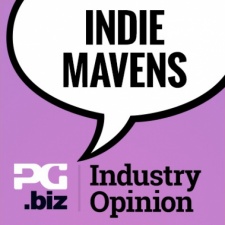Recently in the PC space, there has been lots of heated debate surrounding the Epic Games Store front and what moves the company has made to compete with the juggernaut known as Steam.
One of the key incentives made by Epic was by offering developers an 88 per cent revenue-share model, heavily outranging Steam’s 70 per cent.
After years of Steam dominating the market, the new kids in town have now arrived to shake things up. With this in mind, we thought we’d draw our attention to how the App Store and Google Play handle this topic.
Since launching, both have kept to the 70/30 shared-revenue split on in-app purchases (though have made some concessions on subscriptions) and have become highly profitable businesses. But as small developers in particular struggle to adapt to free-to-play and high marketing costs, should Apple and Google adapt their model?
With any of these hard-hitting questions, we like to open it up to our panel of Indie Mavens to get their input, so we asked:
Do you think the 70/30 model still works and is fair for what platform holders provide?
How do the economics of the revenue share, when combined with marketing and other costs, affect your business?
While it would be nice to have more than 70 per cent share of revenue from the App Store (actually it works out at 60 per cent for UK/EU developers once VAT gets taken off for you), I’d rather have the secure shop, hosting and delivery system than get an extra 15 per cent and lose that.
I’d rather have the secure shop, hosting and delivery system than get an extra 15 per cent and lose that.Aaron Fothergill
So yes, definitely, more revenue share is always good, but not at the expense of customers not knowing if downloading a game will trash their new phone or us having to pay for the bandwidth for each download.
I’m old enough to remember when getting 10 per cent was regarded as a reasonable cut from a publisher and that was after they’d given away a large cut to their distributor.
Okay, you might have got an advance, but you’d also be likely to be giving away the rights to your game too. I know at least one publisher back then who maxed out at a five per cent royalty cut to their developers.
I also remember selling games direct from our own website and needing to come up with ways to process payments that worked internationally and didn’t cost us a fortune in fees.
We actually ended up using a tip-jar site for our early Strange Flavour titles before we officially started the company and partnered up with Freeverse as a publisher.

Ultimately though, the issue for paid apps is getting visibility and actual sales. 90 per cent of nothing is still nothing.
I’d like the platform holders to think more about how to get more visibility for paid apps to the gamers that want to play them. Increased revenue share wouldn’t really help marketing as it would still be a tiny amount compared to what the big free-to-play titles are spending.
Maybe the platform holders could be using a better split as an incentive to keep developers’ games updated. 70/30 is the norm, but if you’re regularly updating your game and keeping a decent review score, as well as responding to reviewers with issues, you increase to 85/15 or better.
As a primarily PC developer, I often hear other developers complaining that Steam doesn't earn their 30 per cent. However, I see Valve doing much more actively to help small companies find customers (and vice versa) than I see on any mobile platform.
Human curation is simply never going to help the mass majority of developers, and without visibility you don't have any customers.Tanya X. Short
I'm hopeful that Apple Arcade might help more indies with smaller narrative experiences find an audience.
Even so, as more games join the platform unless Apple invests in an advanced, Netflix- or Steam-style surfacing algorithm it will still be human curation that makes or breaks your visibility there, too. Human curation is simply never going to help the mass majority of developers, and without visibility you don't have any customers.
All major game platforms should consider lowering or even removing their cut until a game has earned a certain amount (say, $5,000 - a lot to an individual, but peanuts to these megacorps), or been shown to a certain number of people (say, two million impressions) in order to earn their own keep and help encourage a healthier ecosystem of indies surviving to make their second game.
The more experienced developers out there making games, rather than closing shop after their first attempt, the better the art form will become.

Stein Ove Helset is the founder of indie studio AntiSocialGames
You get a lot of value for 30 per cent but when you're just starting out and you make a few dollars, it doesn't feel good when Apple or Google takes some of your money away.
I guess the fact that both Apple and Google earn a lot of money from this means the revenue share might not be changed. It's over 10 years since the markets opened and a lot has happened since then.
I don't want to be without the App Store or Google Play, so I'm not really complaining. Revenue-wise: we haven't made enough and we have so low expenses that it doesn't affect us much.
I'd take better exposure over more revenue, whenever and however that's possible. We've had our games featured a few times on Apple and they've done 100 times more units than on Google - on which we've never been featured.
And I'll second Aaron's idea surrounding how the platform holders could use a better split to incentivise developers to keep their games updated. This sounds brilliant.
























